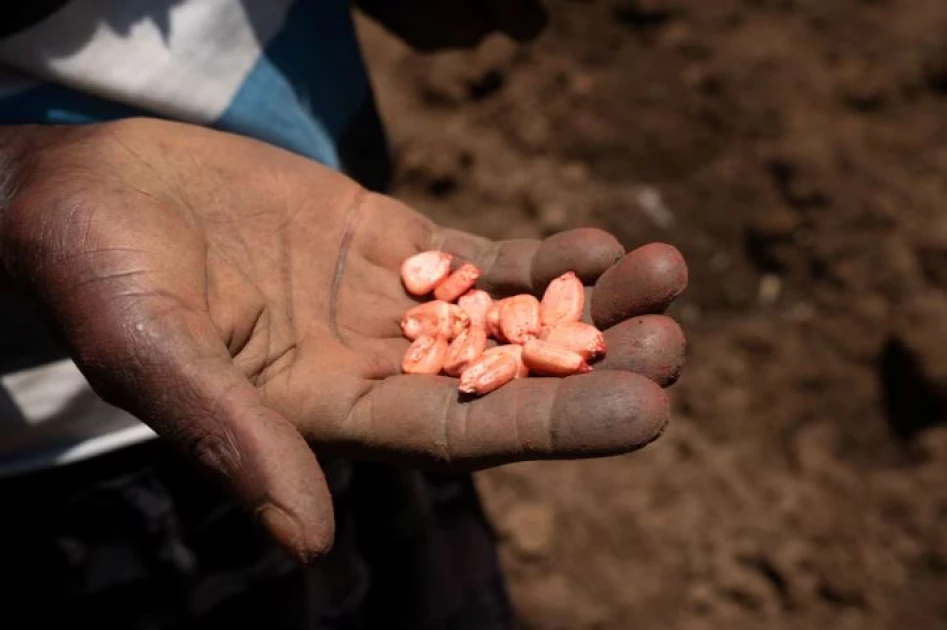Bioherbicide helps lift Kenya's witchweed curse on farmers

Farmer Catherine Wanjala plants maize seeds coated in the fungal bioherbicide Kichawi Kill, which kills the parasitic weed Striga, also known as witchweed, before it can harm the crop in Kakamega, Kenya September 17, 2024. World Food Programme/Handout via REUTERS/File photo

Audio By Vocalize
The parasitic plant, also known as striga, was attacking the maize at its roots, sucking the water and nutrients out of it, meaning she was unable to produce enough to keep her three children fed regularly or in school.
A couple of seasons ago, however, Wanjala started coating her maize seeds in a fungal bioherbicide which, unlike traditional pesticides, targets specific weeds while leaving others untouched. Her maize harvest jumped 675% to 270 kg.
Kichawi Kill, the bioherbicide made by the social enterprise Toothpick, was launched commercially in Kenya in June last year.
The World Food Programme's innovation unit has funded trials to help scale up Kichawi Kill, with the hope the fungus can begin to reach the estimated 1.4 million hectares of land plagued by witchweed across sub-Saharan Africa, WFP's Michael Njagi said.
Meanwhile Wanjala's children are back in school full time and no longer miss meals, she said. "I am able to provide for my family and live well with them," she said.
Studies show that witchweed attacks maize, rice, millet and sorghum, causing an estimated $7 billion-$14 billion of damage to farms in sub-Saharan Africa every year, roughly the same as the United States' annual aid budget to the region.
However, chemical pesticides, while helping farmers grow more intensively, can accumulate in soils and waterways, killing off plants, insects and wildlife, disrupting food chains and causing major biodiversity loss.
Kichawi Kill is made from a naturally occurring fungus that has been engineered to help it kill the witchweed it targets more effectively, causing no harm to farmers or the local ecosystem.
At a cost of 2,000 Kenyan shillings ($15) to protect an acre of farmland, it produces a five to 10-fold return on investment, Toothpick's studies show.
"Using biology to solve biological problems is a far better way than using chemicals," David Sands, a plant pathologist and one of Toothpick's co-founders, said.
At the U.N. biodiversity summit in Colombia, known as COP16, nearly 200 countries have been debating how they can save nature from the current rapid rate of destruction, including cutting the use of pesticides.
Sands said his early research into the use of fungus to kill specific plants stemmed from the U.S. government wanting to wipe out opium poppy and coca plants in the war on drugs in the 1980s -- a project that was eventually abandoned.
Decades later, Kichawi Kill was launched with a very different motive. The fungus has reached over 12,000 farmers like Wanjala, saving almost a million dollars worth of crops.
Toothpick is awaiting regulatory approval for Kichawi Kill's commercial use in Uganda, and is initiating trials in Nigeria, Ethiopia, Cameroon and Ghana, said co-founder Claire Baker.
($1 = 128.5000 Kenyan shillings)


Leave a Comment